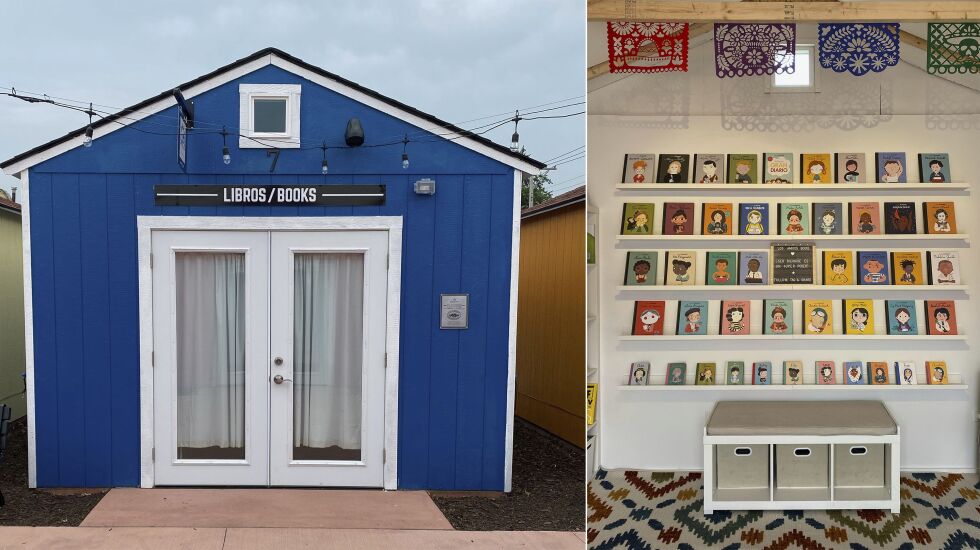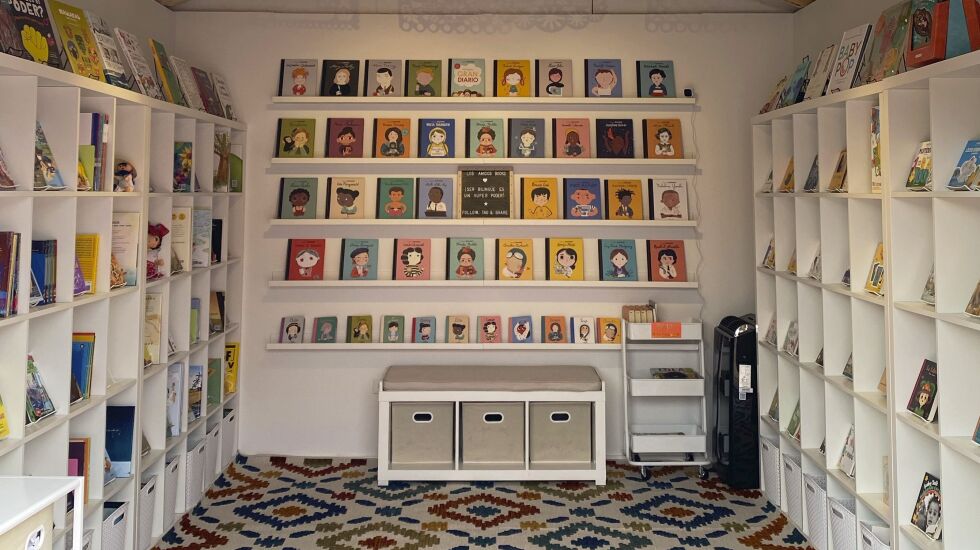
Laura Romani, a Chicago resident with a background in education and library science, had been thinking about shifting to a new career.
“I was at home a couple of years ago, reflecting on all the experience I gained and how I wanted to contribute to the Latino community while also allowing myself to be on my own and make use of my love for books and passion for multilingualism,” Romani says.
The answer, she decided: Open a bookstore.
With help from a grant and stimulus checks she and her husband received during the pandemic, Romani launched Los Amigos Books, initially online last year and now with a small store in Berwyn. It focuses on children’s stories in English and Spanish.

Stores like Romani’s helped contribute to a year of growth and greater diversity for the American Booksellers Association, the trade group for independent bookstore owners. The association now has 2,010 members at 2,547 locations — up more than 300 since the spring of 2021.
That’s the highest ABA total in years even though the association tightened its rules in 2020 to include only stores that “primarily sell books” rather than just any store offering books.
Allison Hill, the ABA’s chief executive officer, says some of the increase is due to bookstore owners who delayed renewing memberships early in 2021, given uncertainty about the pandemic’s impac. But well over 100 of the new members are stores that opened over the past year, Hill says, dozens owned by people from a wider range of racial and ethnic groups.
They include Romani’s store in Berwyn, Libelula Books & Co. in San Diego, Yu and Me Books in New York’s Chinatown, Modern Tribe Bookshop in Killeen, Texas, and Socialight Society in Lansing, Michigan.
The ABA has long been predominantly white. In June 2020 — after George Floyd’s killing by a white police officer in Minneapolis — board president Jamie Fiocco said the association hadn’t done enough to “break down barriers to membership and service for Black, indigenous and people of color.”
Now, Hill points to the new stores and the group’s diversity initiatives and says, “The rise in BIPOC stores is a big change for us.”
Like Romani, many of the new bookstore owners came from different careers or still have them on the side.
Sonyah Spencer works as a consultant to help finance The Urban Reader in Charlotte, North Carolina, focusing on books by African American writers that she opened in part because of the Black Lives Matters movement and her concern about a rise in book bans.
In Locust Grove, Georgia, Erica Atkins was a college teacher and trainer who, while recuperating from surgery, had a vision that she should open a store. So began Birdsong Books.
“I have dedicated my life to knowledge-sharing,” Atkins says. “Anytime I am having a conversation with someone, I am giving book recommendations.”
In Ossining, New York, Amy Hall, says her work in fashion inspired her to open Hudson Valley Books for Humanity. She’d been looking through her bookshelves and thinking about how sustainability in clothing could apply to what she reads. She decided to start a store that would offer mostly used books and reflect the economic and ethnic diversity of Ossining.
“I wanted to build a bookstore that welcomed people from all of these different segments of our community,” Hall says.
Despite fears that the COVID-19 pandemic would devastate book sales, publishers have recorded strong profits the past two years.
Hill and others had feared that hundreds of member stores might close in 2020. As things turned out, about 80 shut down, and only 41 went out of business in 2021.
Independent bookselling has long faced obstacles — from the rise of Barnes & Noble and other “superstores” in the 1990s that helped drive thousands of independents out of business to the growing power of Amazon.com and such recent issues as supply-chain delays and high inflation.
Spencer says higher costs, notably for rent and shipping, have made it a struggle for Urban Bookstore just to break even.
At Birdsong Books, Atkins says she has seen a big jump in prices for Bibles, with the cost of a King James edition up several dollars.
At Changing Hands Bookstores in Arizona, buyer Miranda Myers has noticed several price increases, including for Emily St. John Mandel’s “Sea of Tranquillity,” one of the top literary releases this spring, and Rachel Smythe’s coming Lore Olympus book.
Myers is “definitely noticing these price increases happening more and more lately.”
Still, Changing Hands owner Gayle Shanks says sales “are up, way up. We had the best first quarter we’ve ever had in the store’s history. And this second quarter is also tracking way up. People seem to be reading more than ever.”







